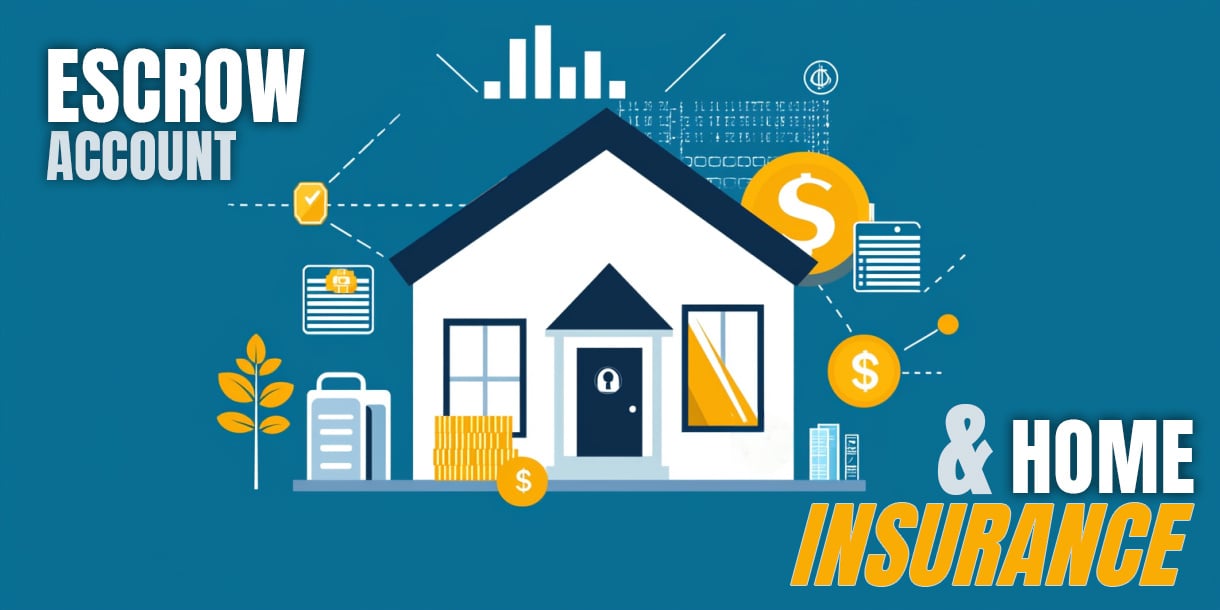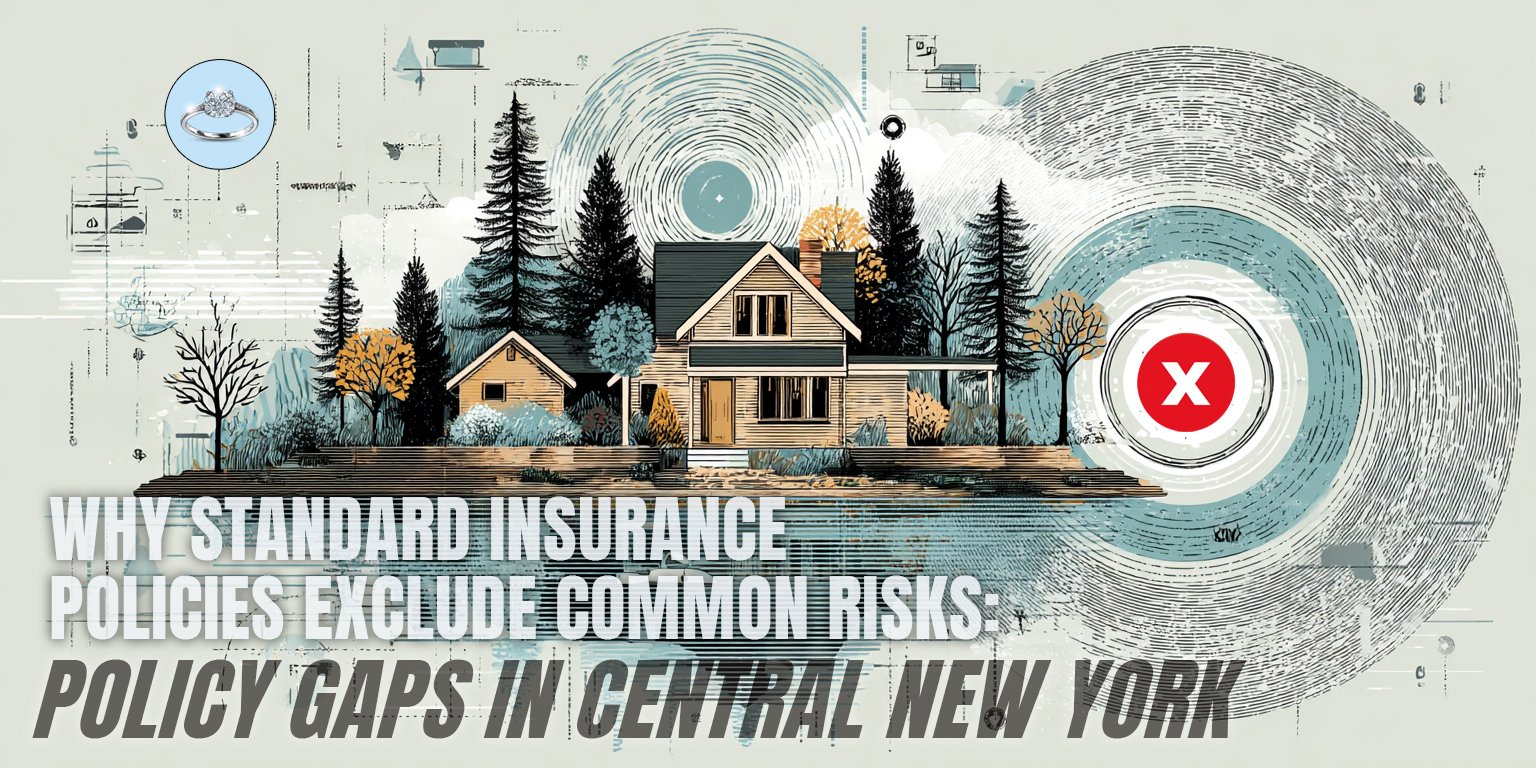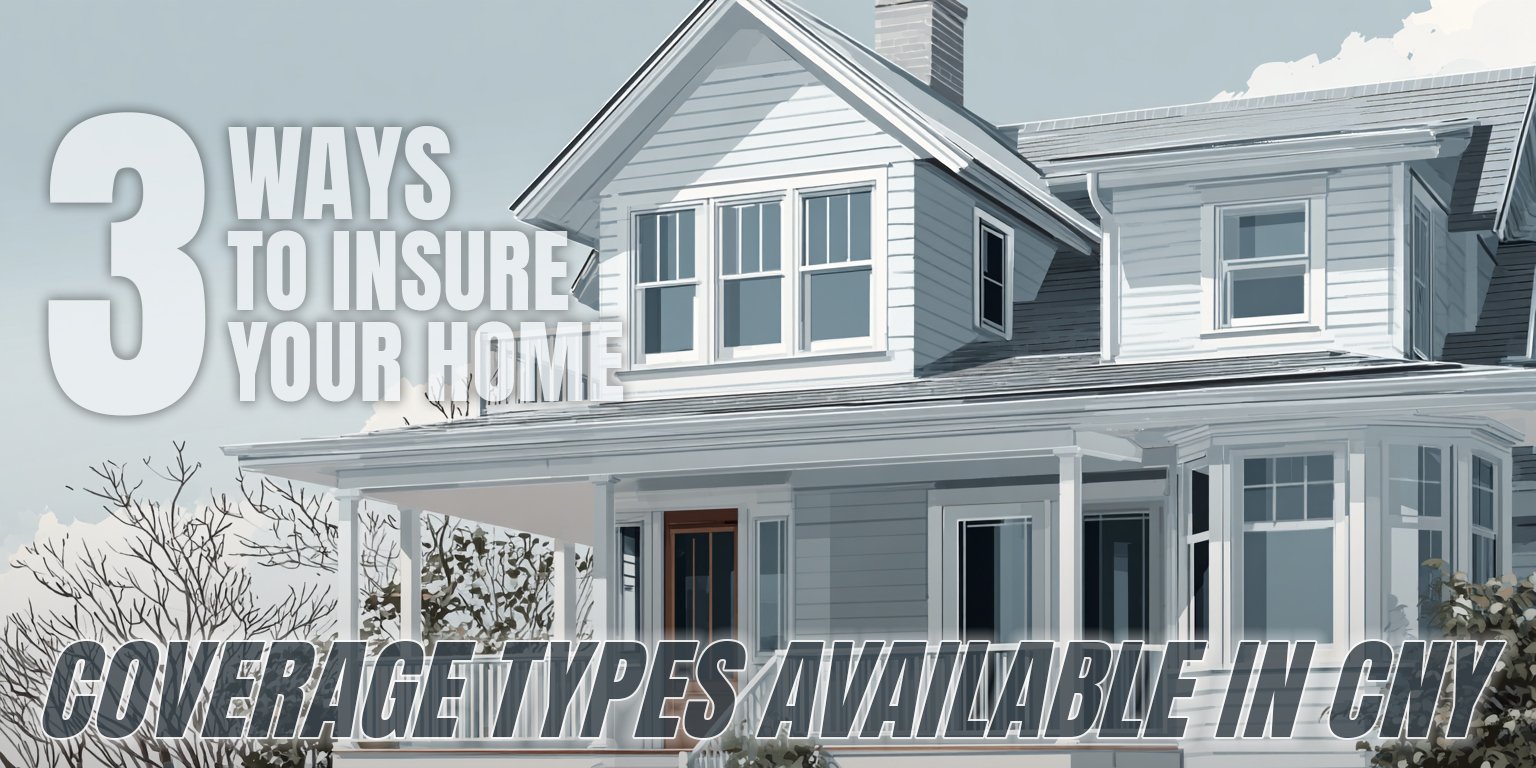How Home Insurance Works with an Escrow Account
March 19th, 2025
5 min read

When you receive your mortgage statement each month, you might notice a portion goes toward something called “escrow.” For many Central New York homeowners, this creates confusion about who actually handles their insurance payments and when those payments happen. This uncertainty can make you wonder about your coverage status and if you're paying the appropriate amount.
At the Horan insurance agency, we work with homeowners throughout Central New York communities to bring clarity to the escrow process. Our team shares information about how insurance payments flow through escrow accounts while helping you understand your options.
In this article, we'll explain what an escrow account is, how it handles your insurance payments, what happens when you want to change insurance companies, and how to manage your coverage while using an escrow account.
What Exactly Is an Escrow Account and How Does It Handle Your Insurance Payments
An escrow account functions as a holding account your mortgage lender establishes to manage certain property-related expenses. When you make your monthly mortgage payment, it typically includes:
- Principal (reducing your loan balance)
- Interest charges
- Property taxes
- Homeowners insurance premium
Your lender collects these funds monthly, holds the insurance portion in your escrow account, and pays your annual or semi-annual insurance premium when it comes due.
For a typical home in Central New York, for example, if your annual homeowners insurance costs $1,500, your lender adds $125 to your monthly mortgage payment. This money accumulates in your escrow account until your renewal insurance bill arrives, at which point your lender pays it directly. The borrower still typically pays the first year premium upfront prior to closing.
When you first purchase your home in Central New York, your lender typically requires an initial deposit into your escrow account. This usually amounts to several months' worth of insurance premiums—often between two and six months of coverage. This upfront funding builds your escrow balance before your first insurance bill arrives.
Why Most Central New York Mortgage Lenders Require Escrow Accounts
If you made a down payment less than 20% on your home, your mortgage lender likely required an escrow account. This requirement exists because the lender wants to maintain control over insurance and tax payments on the property securing your loan.
Since your home serves as collateral, lenders have a financial stake in keeping it insured against damage. The escrow system serves as their method for handling insurance payments on your behalf, regardless of other financial priorities you might face throughout the year.
How Escrow Accounts Affect Your Insurance Costs
A common question among Central New York homeowners is whether having their insurance paid through escrow affects their premium costs. The simple answer is no—escrow accounts are merely a payment method and don't influence your actual insurance rates.
Your premium remains based on factors like your home's construction type, its location in Central New York, your claims history, and the coverage limits you select. The escrow account simply changes how and when that premium gets paid to your insurance carrier.
Some carriers offer discounts for policies paid annually instead of monthly, and since escrow accounts typically make annual payments, you might benefit from this arrangement.
Shopping for Insurance When You Have an Escrow Account
Many homeowners believe escrow accounts limit their ability to shop for better insurance rates or change carriers. This simply isn't accurate.
You maintain freedom to compare homeowners insurance quotes and switch carriers even with an escrow account. Your current insurance company won't receive notification when you request quotes from other companies, and your mortgage lender only becomes involved after you've selected a new policy.
When you find different coverage, the transition process works differently than you might expect. Your new insurance carrier will typically handle communication with your mortgage company, sending them the new policy information and billing details.
Your responsibility usually involves confirming the change with your lender once the new policy takes effect.
Managing Insurance Refunds With Your Escrow Account
If you change insurance carriers before your current policy expires, your previous insurer will likely issue a refund for the unused premium. This refund is typically sent directly to you, the insured, rather than to your mortgage company.
This could lead to a shortage in your escrow account if the lender recently paid an annual premium on the old policy. The bank may then reject the payment request from the new insurer.
They will pay it if there appears to be enough in the account without jeopardizing the account's integrity. If the bank refuses to pay, you would then pay the premium on the new policy for that first year (which you can offset by the returned premium check you received on the canceled policy).
When your lender receives this refund, they may:
- Apply it toward upcoming insurance payments
- Use it to cover an escrow shortage
- Lower your monthly payment slightly if your account has a surplus

What Happens to Your Escrow Account When You Refinance?
When refinancing your home in Central New York, your original mortgage gets paid off, which typically means closing your existing escrow account. Your new lender will establish a fresh escrow account for the refinanced mortgage.
You can usually keep your current homeowners insurance policy during this transition. Your new lender will set up the escrow account to continue paying for your existing policy.
A refinance can serve as an opportunity to review your insurance situation. Since you're already dealing with mortgage changes, it might be convenient to compare rates and coverage options from different carriers.
Understanding Escrow Account Minimum Balance Requirements
Mortgage lenders typically require your escrow account to maintain a minimum balance—usually equivalent to about two months of escrow payments. This buffer creates a cushion that can help with unexpected increases in insurance premiums or property taxes.
Say a homeowner in Fayetteville has a $1,200 annual insurance premium and $4,800 in property taxes. Their monthly escrow contribution would be $500. But the lender might require a minimum balance of $1,000 to be maintained in the account.
This cushion helps explain why your monthly mortgage payment sometimes increases after your annual escrow analysis, even if your insurance premium only rose slightly. The lender aims to rebuild that minimum balance in addition to covering the higher premium.
The Annual Escrow Review and How It Affects Your Monthly Payment
Your mortgage lender performs an annual analysis of your escrow account to verify it contains sufficient funds for upcoming insurance and tax payments. This review often leads to adjustments in your monthly payment.
After severe winter weather in Central New York, many insurers adjust premiums in response to higher claim volumes from ice damming or wind damage. When this happens, your lender adjusts your monthly escrow contribution to address the premium changes.
Similarly, if you enhance your home with a renovation or modify your coverage, the resulting premium adjustment will affect your monthly escrow amount accordingly.
Working With an Insurance Agent While Using Escrow
Having your insurance paid through escrow doesn't change how you can interact with an insurance agent. A licensed agent can provide information about different coverage options while working with your escrow arrangement.
Our licensed agents can offer information about how escrow accounts interact with various mortgage companies serving Central New York. We can discuss potential premium adjustments and how they might relate to your monthly payments.
Consider Your Options for Homeowners Insurance With an Escrow Account
Understanding how escrow accounts work puts you in a better position to evaluate your homeowners insurance. You might wonder if you're limited to your current insurance company or if comparing options is worthwhile when you have an escrow account.
The uncertainty about how changing carriers affects your mortgage payment can make you hesitate to explore alternatives, potentially missing opportunities for different coverage or competitive rates. This frustration grows when you see your monthly payment increase after your annual escrow review without understanding why.
As a Central New York insurance agency, we share information about how escrow accounts handle insurance payments while discussing coverage options. We work with various insurance companies and can provide information about local factors that may affect home insurance in our region.
Click the Get a Quote button below to connect with a licensed agent who can discuss how homeowners insurance works with your escrow account and help you review your current coverage.
Also be sure to read our companion article: When to Get Home Insurance During the House-Buying Process: A Central New York Homebuyer's Guide.
Daniel is an accomplished content creator. He has been working in publishing for almost two decades. Horan Companies hired Daniel as its content manager in November 2022. The agency entrusted its messaging to him. Since then, Daniel has written insurance articles, service pages, PDF guides, and more. All in an effort to educate CNY readers. He's helping them understand the world of insurance so they can make informed decisions.
Topics:





























